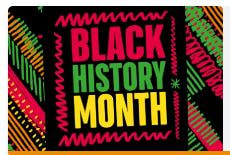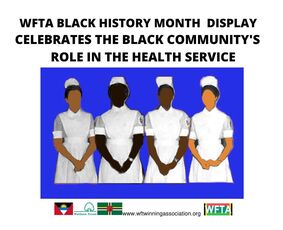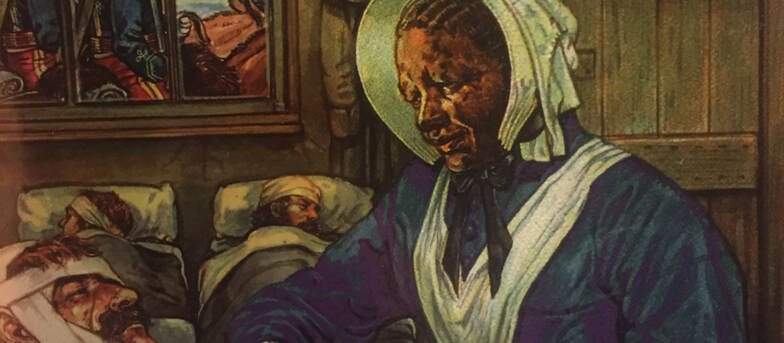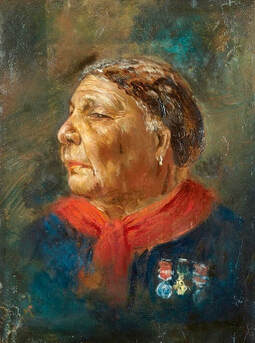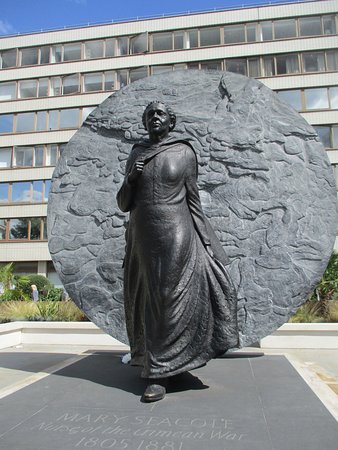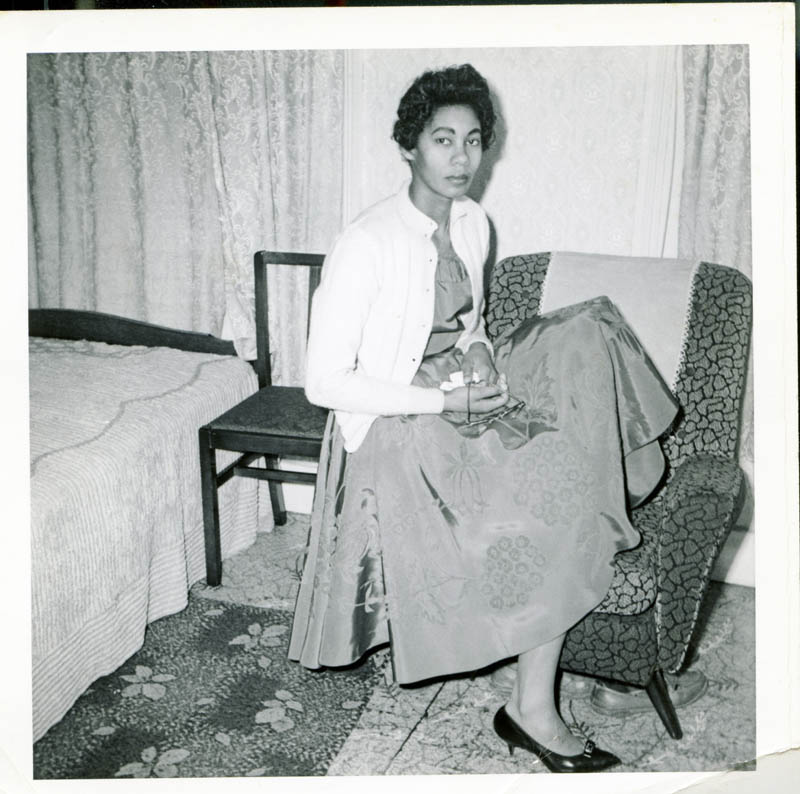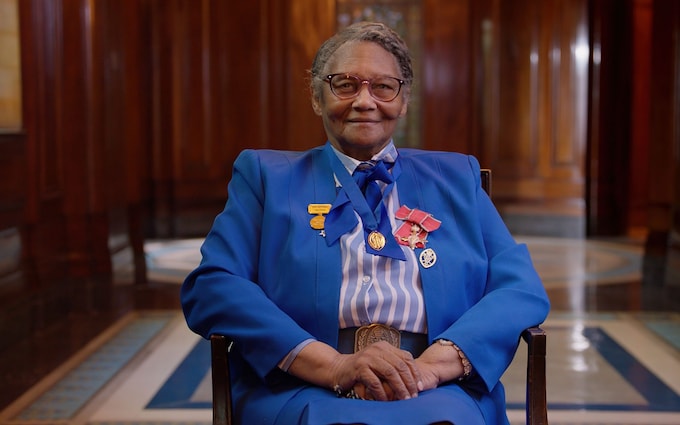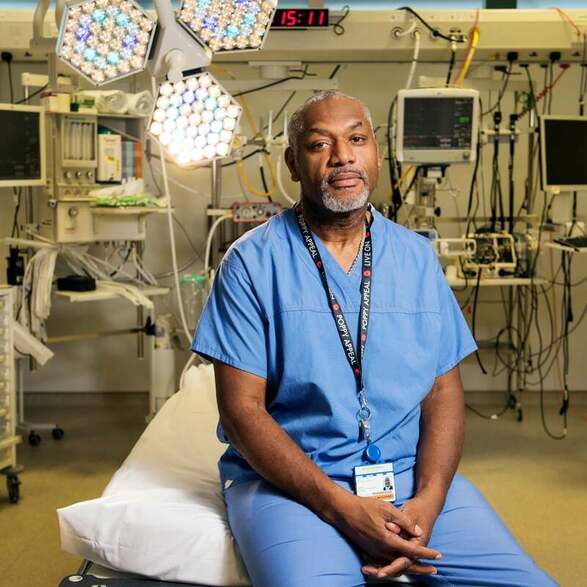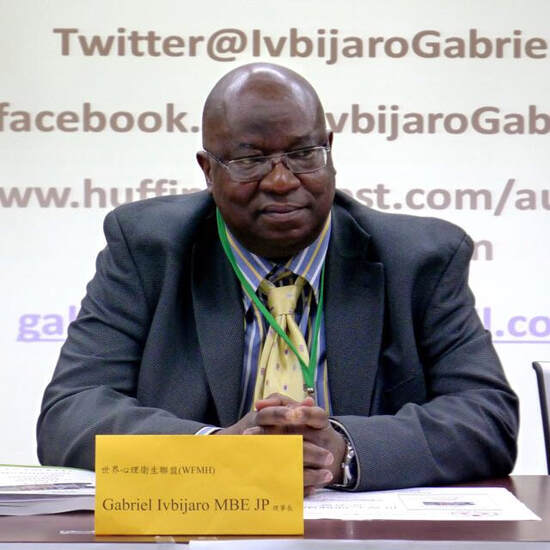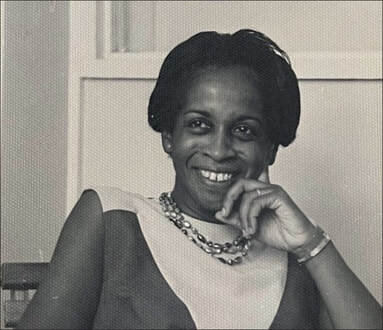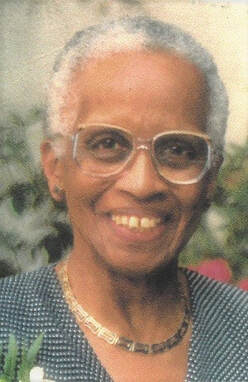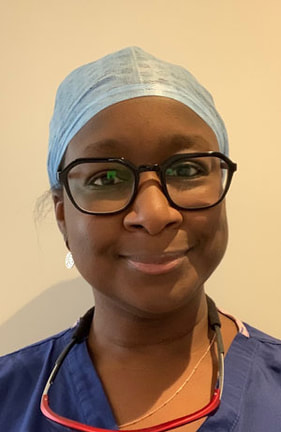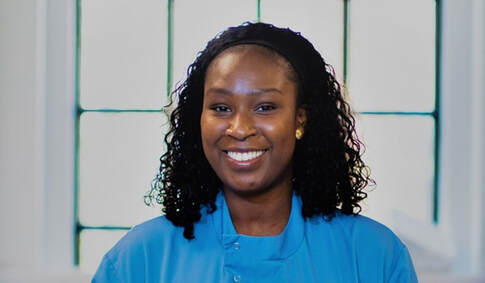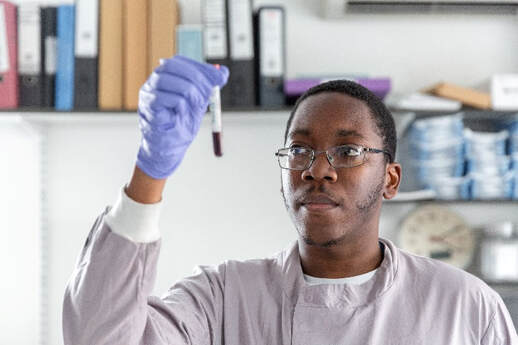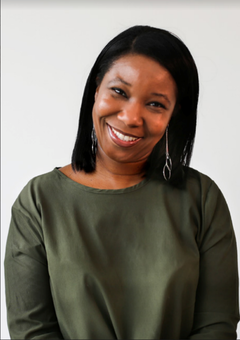BHM 2022
WFTA Windrush and Black Health Display
All are invited to view the display.
- The WFTA already has a display of six roll up banners which raises awareness of the Windrush generation and the barriers they have had to overcome since arriving in the UK.
- We have created three additional banners raising awareness of the Black community’s role in the health service, depicting specific health service individuals’ achievements.
- During Black History Month all nine banners will be in a touring display around Waltham Forest Town Hall, libraries and a community centre.
- The display was produced in collaboration with LBWF Race Equality Network.
All are invited to view the display.
Black People’s contribution to the HEALTH SERVICE
MARY SEACOLE
Mary Jane Seacole was a British-Jamaican nurse and businesswoman who set up the "British Hotel" behind the lines during the Crimean War.
Mary Jane Seacole was a British-Jamaican nurse and businesswoman who set up the "British Hotel" behind the lines during the Crimean War.
For many people the first known black person to contribute to the Health Service is Mary Seacole yet it was 135 years following her death before she was publicly honoured
On Thursday 30 June 2016, a statue honouring the Crimean War nurse Mary Seacole was unveiled in the gardens of St Thomas' Hospital. Sculptor Martin Jennings' striking work is believed to be the first statue in the UK dedicated to a named black woman.
It is inscribed with words written in 1857 by The Times' Crimean War correspondent, Sir William Howard Russell: "I trust that England will not forget one who nursed her sick, who sought out her wounded to aid and succour them, and who performed the last offices for some of her illustrious dead."
On Thursday 30 June 2016, a statue honouring the Crimean War nurse Mary Seacole was unveiled in the gardens of St Thomas' Hospital. Sculptor Martin Jennings' striking work is believed to be the first statue in the UK dedicated to a named black woman.
It is inscribed with words written in 1857 by The Times' Crimean War correspondent, Sir William Howard Russell: "I trust that England will not forget one who nursed her sick, who sought out her wounded to aid and succour them, and who performed the last offices for some of her illustrious dead."
Who do you want to recognise?
So it is that many Black people contribute greatly towards the Health Service yet do not get recognition for their achievements.
This Black History Month Health display aims to address this by asking YOU to nominate black people at every level of the Health Service who they think should be recognised. We are not looking at those in the nursing profession alone. We have provided a few names in this display but will add to them on this webpage during Black History Month, with your help.
Submit your nomination to [email protected] .
So it is that many Black people contribute greatly towards the Health Service yet do not get recognition for their achievements.
This Black History Month Health display aims to address this by asking YOU to nominate black people at every level of the Health Service who they think should be recognised. We are not looking at those in the nursing profession alone. We have provided a few names in this display but will add to them on this webpage during Black History Month, with your help.
Submit your nomination to [email protected] .
THE NURSES
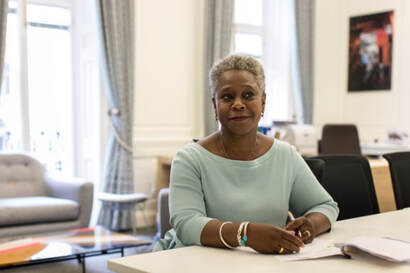
Professor Dame Donna Kinnair DME
Donna is a Trustee of the Burdett Trust for Nursing. She is a Non-Executive Director at East London Foundation Trust. She is Chair of SH24 an online sexual and reproductive health service. She was the General Secretary of the Royal College of Nursing (RCN) until June 2021.
She was responsible for delivering the RCN’s strategic and operational plans and promoting patient and nursing interests on a wide range of issues. Previously she was the director responsible for policy and practice, including working with international nurses and academics.
Donna held various roles, prior to joining the RCN, including clinical director of emergency medicine at Barking, Havering and Redbridge University Hospitals Trust; Executive Director of Nursing, Southeast London Cluster Board; Director of Commissioning, London Borough of Southwark & Southwark PCT. She was the Strategic Commissioner for Lambeth, Southwark and Lewisham Health Authority’s Children’s Services and community services.
Donna advised the PM’s Commission on the future of Nursing and Midwifery in 2010 and served as nurse/child health assessor to the Victoria Climbié Inquiry. She was made a DBE in 2008 for services to nursing.
Donna was born in Antigua.
Donna is a Trustee of the Burdett Trust for Nursing. She is a Non-Executive Director at East London Foundation Trust. She is Chair of SH24 an online sexual and reproductive health service. She was the General Secretary of the Royal College of Nursing (RCN) until June 2021.
She was responsible for delivering the RCN’s strategic and operational plans and promoting patient and nursing interests on a wide range of issues. Previously she was the director responsible for policy and practice, including working with international nurses and academics.
Donna held various roles, prior to joining the RCN, including clinical director of emergency medicine at Barking, Havering and Redbridge University Hospitals Trust; Executive Director of Nursing, Southeast London Cluster Board; Director of Commissioning, London Borough of Southwark & Southwark PCT. She was the Strategic Commissioner for Lambeth, Southwark and Lewisham Health Authority’s Children’s Services and community services.
Donna advised the PM’s Commission on the future of Nursing and Midwifery in 2010 and served as nurse/child health assessor to the Victoria Climbié Inquiry. She was made a DBE in 2008 for services to nursing.
Donna was born in Antigua.
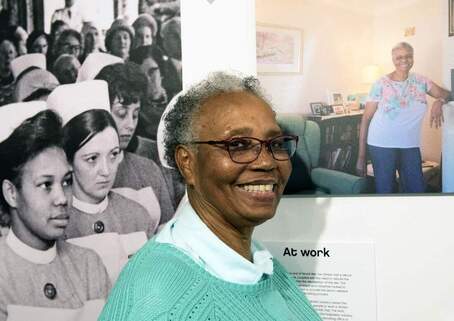
Bernice Burton MBE
Bernice was awarded an MBE for services to nursing and the NHS in East London. She ran and developed services for adults and children affected with sickle cell disorder with emphasis on prevention to help those affected to live the best possible lives they could, to help to prolong their lives and obtain and maintain independent lives whilst living with this condition.
Bernice tackled public and professional ignorance by holding Education seminars and talks for Health Professionals and members of the public. She produced information leaflets and a video which she had translated in four languages. Then organized a Seminar for Health Professionals.
Bernice was born in Dominica.
(Photo credit: Jo Sealy)
Bernice was awarded an MBE for services to nursing and the NHS in East London. She ran and developed services for adults and children affected with sickle cell disorder with emphasis on prevention to help those affected to live the best possible lives they could, to help to prolong their lives and obtain and maintain independent lives whilst living with this condition.
Bernice tackled public and professional ignorance by holding Education seminars and talks for Health Professionals and members of the public. She produced information leaflets and a video which she had translated in four languages. Then organized a Seminar for Health Professionals.
Bernice was born in Dominica.
(Photo credit: Jo Sealy)
Zena Edmund-Charles MBE
Zena is a Queen’s Nurse who trained at the Institute. (The Queen’s Nursing Institute)
She was born in Jamaica, training and working as a community midwife before coming to England in March 1952. Zena undertook 3 years general training at Bethnal Green Hospital starting September 1952, and was awarded recognition prizes in her first two years. She trained as a Queen’s Nurse in 1964, then worked as a community midwife and midwife trainer until she returned to district nursing in Waltham Forest in 1980. In 1992 retired from District nursing due to a back injury, and then worked as a practice nurse at 6 different practices.
Zena was awarded Queen’s Nurses medal for 21 years’ service in 1985 by Princess Anne, and in 1999 was awarded an MBE by the Queen for services to the community.
She was born in Jamaica, training and working as a community midwife before coming to England in March 1952. Zena undertook 3 years general training at Bethnal Green Hospital starting September 1952, and was awarded recognition prizes in her first two years. She trained as a Queen’s Nurse in 1964, then worked as a community midwife and midwife trainer until she returned to district nursing in Waltham Forest in 1980. In 1992 retired from District nursing due to a back injury, and then worked as a practice nurse at 6 different practices.
Zena was awarded Queen’s Nurses medal for 21 years’ service in 1985 by Princess Anne, and in 1999 was awarded an MBE by the Queen for services to the community.
Maria Elizabeth Delauney known as Liz Delauney
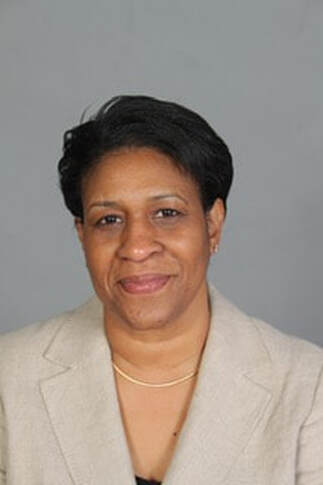
Liz is currently the Managing Director of Transformational Consulting Limited, a company established in 2008 to support the NHS and Local Authorities to deliver complex change across health and social care services.
Her work as an Independent Management Consultant has led to the delivery of strategic programmes and projects across a range of organisations involved in both provision and commissioning. She continues to work in that capacity.
She is also currently a Non-Executive Director at North-East London Foundation Trust since 2017 and Chairs the Quality and Safety Committee at that Trust, whilst being a member of other Trust Committees.
However, since coming to the UK from the Commonwealth of Dominica, Liz has had over 44 years of working in the NHS, initially being trained as a Nurse, Midwife, and Health Visitor before transferring to senior managerial roles within Health Trusts and to Health Authorities where she worked as a Nurse Board Adviser.
Some of her more national work in the past includes leading the implementation of NHS 111 (now NHS Direct) across North-East London and supporting the Borough of Luton on the implementation of Sure Start Children Services. She also led on delivery of the Equality and Diversity agenda across all London provider organisations in 2008/09.
Liz was an Executive Director with the Waltham Forest Primary Care Trust from 2001 to 2008.
She has a track record of delivering complex change across health and social care services. Her experience involves strategic planning, workforce and service redesign, clinical governance and the management of community and primary care services.
Previously, she was a Chair with the Nursing and Midwifery Council from 2021 to 2022, chairing panels on Fitness to Practice, Fraudulent and Incorrect Entries to the Register and on Registrant Appeal Hearings.
Liz gained an MSc in Occupational and Organisational Psychology in 1998 and specialised in the development of training programmes as well as gaining competencies in Psychometric Testing. She is accredited to administer the Myers Briggs (MBTI) among other psychometric tests. She is a member of the British Psychological Society and uses her skills in mentoring and coaching NHS staff.
Liz has also used her skills external to the NHS and social care, having been the Vice Chair of the Waltham Forest Corporation Board between 2009 and 2015. She also developed and ran a Joint Venture to support young people leaving the care system.
Her work as an Independent Management Consultant has led to the delivery of strategic programmes and projects across a range of organisations involved in both provision and commissioning. She continues to work in that capacity.
She is also currently a Non-Executive Director at North-East London Foundation Trust since 2017 and Chairs the Quality and Safety Committee at that Trust, whilst being a member of other Trust Committees.
However, since coming to the UK from the Commonwealth of Dominica, Liz has had over 44 years of working in the NHS, initially being trained as a Nurse, Midwife, and Health Visitor before transferring to senior managerial roles within Health Trusts and to Health Authorities where she worked as a Nurse Board Adviser.
Some of her more national work in the past includes leading the implementation of NHS 111 (now NHS Direct) across North-East London and supporting the Borough of Luton on the implementation of Sure Start Children Services. She also led on delivery of the Equality and Diversity agenda across all London provider organisations in 2008/09.
Liz was an Executive Director with the Waltham Forest Primary Care Trust from 2001 to 2008.
She has a track record of delivering complex change across health and social care services. Her experience involves strategic planning, workforce and service redesign, clinical governance and the management of community and primary care services.
Previously, she was a Chair with the Nursing and Midwifery Council from 2021 to 2022, chairing panels on Fitness to Practice, Fraudulent and Incorrect Entries to the Register and on Registrant Appeal Hearings.
Liz gained an MSc in Occupational and Organisational Psychology in 1998 and specialised in the development of training programmes as well as gaining competencies in Psychometric Testing. She is accredited to administer the Myers Briggs (MBTI) among other psychometric tests. She is a member of the British Psychological Society and uses her skills in mentoring and coaching NHS staff.
Liz has also used her skills external to the NHS and social care, having been the Vice Chair of the Waltham Forest Corporation Board between 2009 and 2015. She also developed and ran a Joint Venture to support young people leaving the care system.
BEYOND NURSES
Martin Griffiths CBE
Martin Griffiths, consultant trauma and vascular surgeon at Barts Health NHS Trust and national clinical director for violence reduction for NHS England, has been awarded a Commander of the Most Excellent Order of the British Empire (CBE) in the Queen’s Birthday Honours List 2021.
Martin is recognised for his work across the NHS in empowering communities and health professionals to challenge the attitudes and behaviours that result in violence and supporting people–many of them young–to make better choices.
Martin is recognised for his work across the NHS in empowering communities and health professionals to challenge the attitudes and behaviours that result in violence and supporting people–many of them young–to make better choices.
Alongside his role as a surgeon based at The Royal London Hospital, part of Barts Health NHS Trust, for over 15 years Martin has worked in the community to educate young people about the grave consequences of knife and gun crime.
Martin set up the UK's first hospital ward-based violence reduction service at Barts Health in 2015. The award-winning programme sees hospital staff and case workers from the charity St Giles Trust help young patients injured through knife crime while they are still being treated in the hospital, to help break the cycle of violence at the point of crisis. The service works with victims to unravel the complex social reasons behind knife crime and offers holistic support to help prevent further harm. It has had incredible success in reducing retaliation and violent reoffending in this group of vulnerable young people.
More recently, Martin started a new mission – becoming a Covid-19 vaccinator at The Royal London Hospital and tackling vaccine hesitancy in ethnic minority communities.
Martin is also a passionate campaigner for fairness, equality and promoting diversity.
Martin said: “This award recognises what can be achieved when those who are committed and principled work collaboratively to address an issue central to our society. Our communities own the vision to addressing violence. Our role is to listen, challenge and support.
“On a personal level I’m not quite sure how to take things. I’m the product of a loving family, and a community that maintained its sense of self-worth and pride in its heritage. I’m the product of a state education and am proud to serve in the NHS which has served us all so well in the darkest of times this past year. I have the best colleagues who support, challenge and (rightly) ridicule me when I start believing the hype.”
Dame Alwen Williams, group chief executive at Barts Health NHS Trust, said: “I am hugely proud of Martin and his tireless work to improve the lives of young people across east London, and now across the UK. He is an asset to Barts Health and the wider NHS and incredibly deserving of this honour.”
In 2019, Martin was appointed London’s first NHS clinical director for violence reduction, a role he now holds nationally.
Dr Vin Diwakar, medical director for the NHS in London, said: “My sincere congratulations go to Martin upon being awarded a CBE. Martin is a surgeon, leader and role model for the NHS across London. He cares for patients affected by violence but also their families and communities, works tirelessly with local government and the voluntary sector to prevent further violence, and supports the wellbeing of young people. He and the teams that he leads should be very proud of this well-deserved honour.”
https://www.bartshealth.nhs.uk/news/martin-griffithsawardedcbe-10929
Martin set up the UK's first hospital ward-based violence reduction service at Barts Health in 2015. The award-winning programme sees hospital staff and case workers from the charity St Giles Trust help young patients injured through knife crime while they are still being treated in the hospital, to help break the cycle of violence at the point of crisis. The service works with victims to unravel the complex social reasons behind knife crime and offers holistic support to help prevent further harm. It has had incredible success in reducing retaliation and violent reoffending in this group of vulnerable young people.
More recently, Martin started a new mission – becoming a Covid-19 vaccinator at The Royal London Hospital and tackling vaccine hesitancy in ethnic minority communities.
Martin is also a passionate campaigner for fairness, equality and promoting diversity.
Martin said: “This award recognises what can be achieved when those who are committed and principled work collaboratively to address an issue central to our society. Our communities own the vision to addressing violence. Our role is to listen, challenge and support.
“On a personal level I’m not quite sure how to take things. I’m the product of a loving family, and a community that maintained its sense of self-worth and pride in its heritage. I’m the product of a state education and am proud to serve in the NHS which has served us all so well in the darkest of times this past year. I have the best colleagues who support, challenge and (rightly) ridicule me when I start believing the hype.”
Dame Alwen Williams, group chief executive at Barts Health NHS Trust, said: “I am hugely proud of Martin and his tireless work to improve the lives of young people across east London, and now across the UK. He is an asset to Barts Health and the wider NHS and incredibly deserving of this honour.”
In 2019, Martin was appointed London’s first NHS clinical director for violence reduction, a role he now holds nationally.
Dr Vin Diwakar, medical director for the NHS in London, said: “My sincere congratulations go to Martin upon being awarded a CBE. Martin is a surgeon, leader and role model for the NHS across London. He cares for patients affected by violence but also their families and communities, works tirelessly with local government and the voluntary sector to prevent further violence, and supports the wellbeing of young people. He and the teams that he leads should be very proud of this well-deserved honour.”
https://www.bartshealth.nhs.uk/news/martin-griffithsawardedcbe-10929
Professor Gabriel Ivbijaro MBE
|
- He co-edited ‘Integrating Mental Health Into Primary Care: A Global Perspective’ in collaboration with World Health Organization and World Organization of Family Doctors in 2008 and has participated in a range of mental health transformation projects including Royal College of General Practitioners representative on the Royal College of Psychiatrists Intercollegiate SOC Committee that produced the ‘Good Practice Guidelines for the Assessment and Treatment of Gender Dysphoria’ in 2013. He was a Member of the European Platform for Mental Health from 2008 to 2009.
- Professor Ivbijaro has presented papers and original thinking on primary care mental health integration and collaborative care at many local and international conferences, and has published a range of articles in peer reviewed journals.
- He was editor of the ‘Companion to Primary Care Mental Health,’ an international collaboration of 110 authors from all continents of the world which received a five star (100%) Doody’s Review and aims to promote access and delivery of evidence based practice in primary care.
- His PhD ‘Stigma and social distance for schizophrenia in psychiatrists, general practitioners and service users’ highlights some of the challenges that mental health patients face when accessing health services due to stigma and discrimination.
- Professor Ivbijaro has extensive experience in NHS leadership and management. He completed an MA in Leadership at the Kings Fund, London UK and Middlesex University UK in 2005.
- He was North East London Director of Higher Professional Education in General Practice from 2001 to 2005, London Regional General Practice Adviser for the Improving Access to Psychological Therapies Programme from 2010 to 2012, Chair of the Long Term Mental Health Conditions Clinical Expert Panel for NHS London from 2010 to 2012 and Clinical Chair for Waltham Forest Federated GP Commissioning Consortium from 2011 to 2013. His contribution to the UK National Health Service was recognised in 2012 when he was awarded an MBE (Member of the Order of the British Empire) by her Majesty the Queen.
- Professor Ivbijaro is an International Distinguished Fellow of the American Psychiatric Association, a Wonca Fellow, a Fellow of the Royal College of General Practitioners, a member of the American College of Psychiatrists, an Honorary Member of the World Psychiatric Association (WPA) and World Association of Social Psychiatrists (WASP) Honorary Fellowship.
Monica Lewin
At a time when there were few black or minority ethnic surgeons to be seen in the UK, Monica Lewin became the first Jamaican woman to become a fellow of The Royal College of Surgeons of England. Born in Jamaica in 1926, she went on to study medicine at the Royal Free Hospital in London on a Jamaican government scholarship. She met her husband David Atkinson when they were both medical students and they married in 1949.
After qualifying, she held a series of posts as house surgeon and house physician, and served in Brighton, the Royal London Homoeopathic Hospital and the Elizabeth Garrett Anderson Hospital. She passed the FRCS exam in 1962 and returned to Jamaica where she served as a senior registrar and was made surgeon to the Children's and Kingston Public Hospitals a year later. During the unrest in Kingston in the 1960s, she worked tirelessly to treat gunshot and machete wounds, saving countless lives while working close to danger.
She eventually returned to the UK with her husband when he was offered a post as a consultant urologist at the North Middlesex Hospital. Monica stayed involved as a clinical assistant in the accident and emergency departments of the Royal Northern and Whittington Hospitals. She retired in 1988 and became an avid radio amateur, or radio ham. She died in 1998 and is survived by two children and three grandchildren.
After qualifying, she held a series of posts as house surgeon and house physician, and served in Brighton, the Royal London Homoeopathic Hospital and the Elizabeth Garrett Anderson Hospital. She passed the FRCS exam in 1962 and returned to Jamaica where she served as a senior registrar and was made surgeon to the Children's and Kingston Public Hospitals a year later. During the unrest in Kingston in the 1960s, she worked tirelessly to treat gunshot and machete wounds, saving countless lives while working close to danger.
She eventually returned to the UK with her husband when he was offered a post as a consultant urologist at the North Middlesex Hospital. Monica stayed involved as a clinical assistant in the accident and emergency departments of the Royal Northern and Whittington Hospitals. She retired in 1988 and became an avid radio amateur, or radio ham. She died in 1998 and is survived by two children and three grandchildren.
Anthea Davy
Anthea Davy is the first black British woman to be appointed a consultant in trauma and orthopaedics in the UK and is a member of the Women in Surgery Forum at RCS England. ‘My parents tell me that from a young age I always said that I wanted to be a doctor. I was interested in things requiring manual dexterity, such as playing musical instruments and was forever building or deconstructing things, wanting to know how they worked mechanically.’
One of the things that she values most as a surgeon is the relationship between the surgeon and the patient. ‘To have someone say, “I trust you, I want you to operate on me” always means a lot to me.’ She says that some patients you never forget. One of her most memorable patients was a lady with severe rheumatoid arthritis of the hand which required a particularly difficult surgery. ‘She was so happy to be able to use her hands again, she crocheted me a lovely scarf, which I still wear today.’
‘I always have mixed feelings about Black History Month’, Anthea explains.
While she relishes the opportunity to learn more about black history in the UK, she says that ‘I am saddened that “black” history seems confined to one month of the year and is often not taught as part of UK history.’
Anthea was one of thousands of people who responded to the College’s survey on diversity in early October. The aim of the survey was to understand how fellows and members felt about the diversity of leadership at the College, in order to inform the independent review being led by Baroness Helena Kennedy QC. According to Anthea, while the College continues to make great strides in supporting female surgeons in their career through its Women in Surgery network, it is yet to get to grips with race and ethnicity.
‘As a black woman surgeon having been asked to reflect on diversity in surgery during Black History Month, I can see little representation of people like me in leadership positions within the College.’ She believes, however, that the College has the opportunity to act as a shining example of good practice for the surgical profession through its ongoing commitment to tackle discrimination and improve diversity and inclusion.
On how the current direction of travel benefits everyone, not just black surgeons but the profession and patients more broadly, she adds: ‘I am delighted to see the increasing number of talented surgeons of African and Caribbean heritage rising through the ranks, many of whom will be brilliant surgical leaders of the future – I hope their talent will be nurtured.’
https://www.rcseng.ac.uk/news-and-events/news/archive/black-surgeons-past-present/
One of the things that she values most as a surgeon is the relationship between the surgeon and the patient. ‘To have someone say, “I trust you, I want you to operate on me” always means a lot to me.’ She says that some patients you never forget. One of her most memorable patients was a lady with severe rheumatoid arthritis of the hand which required a particularly difficult surgery. ‘She was so happy to be able to use her hands again, she crocheted me a lovely scarf, which I still wear today.’
‘I always have mixed feelings about Black History Month’, Anthea explains.
While she relishes the opportunity to learn more about black history in the UK, she says that ‘I am saddened that “black” history seems confined to one month of the year and is often not taught as part of UK history.’
Anthea was one of thousands of people who responded to the College’s survey on diversity in early October. The aim of the survey was to understand how fellows and members felt about the diversity of leadership at the College, in order to inform the independent review being led by Baroness Helena Kennedy QC. According to Anthea, while the College continues to make great strides in supporting female surgeons in their career through its Women in Surgery network, it is yet to get to grips with race and ethnicity.
‘As a black woman surgeon having been asked to reflect on diversity in surgery during Black History Month, I can see little representation of people like me in leadership positions within the College.’ She believes, however, that the College has the opportunity to act as a shining example of good practice for the surgical profession through its ongoing commitment to tackle discrimination and improve diversity and inclusion.
On how the current direction of travel benefits everyone, not just black surgeons but the profession and patients more broadly, she adds: ‘I am delighted to see the increasing number of talented surgeons of African and Caribbean heritage rising through the ranks, many of whom will be brilliant surgical leaders of the future – I hope their talent will be nurtured.’
https://www.rcseng.ac.uk/news-and-events/news/archive/black-surgeons-past-present/
|
Hadijatou Sallah
|
Leon McFarlane
|
|
Hadijatou Sallah is a research assistant and part of the group that developed the Imperial College London Covid-19 vaccine.
|
Leon McFarlane is a senior Good Clinical Lab Practice (GCLP) research technician who helped manage the COVAC1 Imperial Covid-19 vaccine clinical trial.
|
In May 2021 together Hadijatou and Leon reflected on what it was like to help develop and test a vaccine for Covid-19, underrepresentation of people from ethnic minority groups in research science and how they came up against vaccine hesitancy among friends and family.
As Black research scientists, it’s impossible to ignore the fact that there are very few Black people in our field. Much of this is due to the lack of encouragement or guidance from within for ethnic minority people to follow science careers. But there can also be a feeling that this is a world where you may not fit in. The perceived lack of representation earlier on in our careers led to a sense of not belonging and ‘imposter syndrome’. It’s important that, as a society, we do what’s needed to address this, not least because underrepresentation can cause racial bias in science and reinforce perceptions of racial bias in ethnic minority groups and other underrepresented.communities.
It is a great start that Imperial College London runs events and has people in place to help address this, such as the Imperial Belonging Interview series – but we’d like to see more organisation-wide networking events. For a multicultural place of work, it’s important that thoughts and ideas from people of all backgrounds are communicated and discussed.
Our work on Covid-19 vaccines has also made us very aware of how important it is that all adults are vaccinated. Black people are more likely to die of Covid-19 than white people, with Black men twice as likely and other ethnic minorities also disproportionately affected. So it’s extremely worrying that take up of the vaccine has been comparatively low among ethnic minority communities.
We’ve both seen vaccine concerns in our own communities, and even among our friends and families. Because of real inequalities in health outcomes, and historical mistreatment of ethnic minority people in the name of science and medicine, there is a lack of trust. Thankfully, we’ve had the opportunity to reassure the people in our circles that the vaccines are in fact safe.
But many people from ethnic minority communities won’t know anyone who works in the kinds of roles we do – someone they trust who can give them the facts and help them to understand that having the vaccine is safe and the best thing they can do right now for their health. Without that, it can be all too easy to fall for the kinds of misinformation we’ve all seen circulating on social media.
Inaccurate information tends to get attention and it’s rife on social media. Sometimes, all it takes is an honest misunderstanding of a concept and this can snowball into something damaging; there have also been many Covid-19 conspiracy theories. As humans, it’s in our nature to be intrigued by building narratives and finding connections between things, even if they aren’t really there – like the outlandish conspiracy theories connecting Covid-19 and the 5G mobile phone network. Unfortunately, this can sometimes be easier to accept and understand than real science and can have a negative impact of disease control and prevention.
https://www.imperial.nhs.uk/about-us/blog/our-observations-on-the-covid-19-vaccination-and-ethnicity
As Black research scientists, it’s impossible to ignore the fact that there are very few Black people in our field. Much of this is due to the lack of encouragement or guidance from within for ethnic minority people to follow science careers. But there can also be a feeling that this is a world where you may not fit in. The perceived lack of representation earlier on in our careers led to a sense of not belonging and ‘imposter syndrome’. It’s important that, as a society, we do what’s needed to address this, not least because underrepresentation can cause racial bias in science and reinforce perceptions of racial bias in ethnic minority groups and other underrepresented.communities.
It is a great start that Imperial College London runs events and has people in place to help address this, such as the Imperial Belonging Interview series – but we’d like to see more organisation-wide networking events. For a multicultural place of work, it’s important that thoughts and ideas from people of all backgrounds are communicated and discussed.
Our work on Covid-19 vaccines has also made us very aware of how important it is that all adults are vaccinated. Black people are more likely to die of Covid-19 than white people, with Black men twice as likely and other ethnic minorities also disproportionately affected. So it’s extremely worrying that take up of the vaccine has been comparatively low among ethnic minority communities.
We’ve both seen vaccine concerns in our own communities, and even among our friends and families. Because of real inequalities in health outcomes, and historical mistreatment of ethnic minority people in the name of science and medicine, there is a lack of trust. Thankfully, we’ve had the opportunity to reassure the people in our circles that the vaccines are in fact safe.
But many people from ethnic minority communities won’t know anyone who works in the kinds of roles we do – someone they trust who can give them the facts and help them to understand that having the vaccine is safe and the best thing they can do right now for their health. Without that, it can be all too easy to fall for the kinds of misinformation we’ve all seen circulating on social media.
Inaccurate information tends to get attention and it’s rife on social media. Sometimes, all it takes is an honest misunderstanding of a concept and this can snowball into something damaging; there have also been many Covid-19 conspiracy theories. As humans, it’s in our nature to be intrigued by building narratives and finding connections between things, even if they aren’t really there – like the outlandish conspiracy theories connecting Covid-19 and the 5G mobile phone network. Unfortunately, this can sometimes be easier to accept and understand than real science and can have a negative impact of disease control and prevention.
https://www.imperial.nhs.uk/about-us/blog/our-observations-on-the-covid-19-vaccination-and-ethnicity
Marie Gentles OBE
I was born in 1979 and grew up in Waltham Forest. I qualified as a teacher in 2002 and after working as a class teacher and middle leader in the mainstream sector for eight years, I began working in a primary Pupil Referral Unit (PRU) and Social Emotional and Mental Health (SEMH) Provision. In 2010 I became the Deputy Head Teacher of the PRU and then the Head teacher and worked there for eleven years in total.
In 2008 I was appointed the strategic lead for a London Borough’s Nurture Group project and set up a Nurture Group model to serve the entire Borough, the first of its kind nationally. It had immense success in transforming pupil’s behaviour and significantly reducing the rate of permanent exclusions in the borough. In the academic year 2018, 100% of Nurture Group pupils modified their behaviour following a Nurture Group intervention and sustained reintegration back into mainstream school. This data and how the provision was supporting children was outstanding and in February 2019 the PRU & SEMH Provision received an ‘Outstanding’ grading by Ofsted.
In 2020 I received an OBE for my services to education and I began working part time as a Behaviour Advisor for the Government, as well as setting up a training a consultancy business, Magic Behaviour Management. I desperately want to support as many children and young people nationally and internationally to be safe, well and resilient, and for the adults supporting them to work in an inclusive, preventive way that empowers, uplifts and inspires.
During the academic year 2020/2021 my work was documented on TV to create a series that aired in September 2021. The programme was titled "Don’t Exclude me!”
https://www.bbc.co.uk/iplayer/episode/m001046r/sign/dont-exclude-me-series-1-episode-1
https://www.bbc.co.uk/iplayer/episode/m0010cx8/sign/dont-exclude-me-series-1-episode-2
My future goals are to continue to gently guide others in ways to effectively support children and young people with their behaviour in a sustainable way. I want others to have another choice, another way, to perceive and to support. There are many wonderful practitioners who share effective practices and processes and I provide another way.
Note: Marie’s mother was born in Jamaica and her father in Barbados
In 2008 I was appointed the strategic lead for a London Borough’s Nurture Group project and set up a Nurture Group model to serve the entire Borough, the first of its kind nationally. It had immense success in transforming pupil’s behaviour and significantly reducing the rate of permanent exclusions in the borough. In the academic year 2018, 100% of Nurture Group pupils modified their behaviour following a Nurture Group intervention and sustained reintegration back into mainstream school. This data and how the provision was supporting children was outstanding and in February 2019 the PRU & SEMH Provision received an ‘Outstanding’ grading by Ofsted.
In 2020 I received an OBE for my services to education and I began working part time as a Behaviour Advisor for the Government, as well as setting up a training a consultancy business, Magic Behaviour Management. I desperately want to support as many children and young people nationally and internationally to be safe, well and resilient, and for the adults supporting them to work in an inclusive, preventive way that empowers, uplifts and inspires.
During the academic year 2020/2021 my work was documented on TV to create a series that aired in September 2021. The programme was titled "Don’t Exclude me!”
https://www.bbc.co.uk/iplayer/episode/m001046r/sign/dont-exclude-me-series-1-episode-1
https://www.bbc.co.uk/iplayer/episode/m0010cx8/sign/dont-exclude-me-series-1-episode-2
My future goals are to continue to gently guide others in ways to effectively support children and young people with their behaviour in a sustainable way. I want others to have another choice, another way, to perceive and to support. There are many wonderful practitioners who share effective practices and processes and I provide another way.
Note: Marie’s mother was born in Jamaica and her father in Barbados

